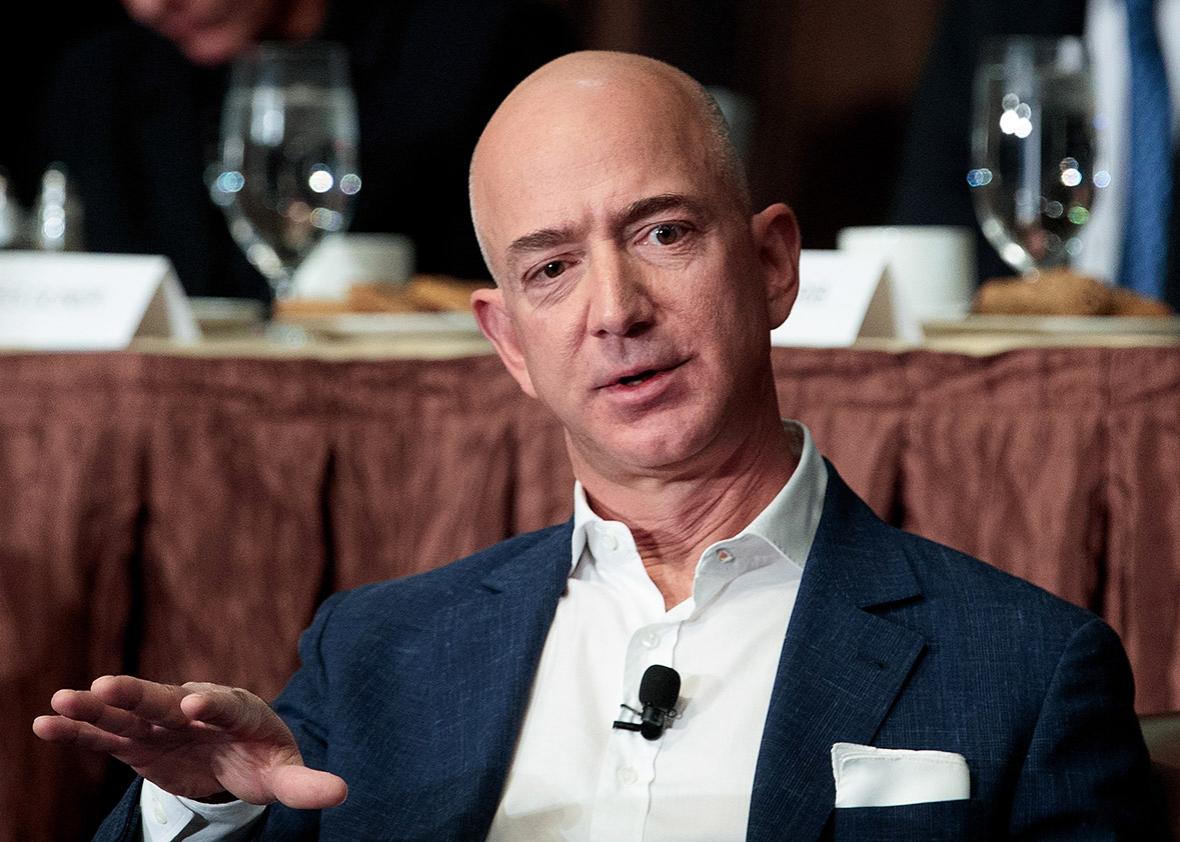It’s been a big week for Jeff Bezos: Friday morning we found out that Amazon will acquire Whole Foods for $13.7 billion. It seems like just the latest move in the “Jeff Bezos wants to take over the world” files, as Will Oremus wrote in Slate on Friday morning (it’s a thesis many people agree with).
The move allowed Bezos to reclaim his position as the world’s second-richest man, another big milestone. The question that comes with that amount of money, of course, is “what are you going to do with it?” Earlier this week (even before the merger and subsequent bump to his fortune), Bezos refused to reply to some pointed questions from the New York Times about his seeming lack of philanthropic giving. That inquiry seems to have prompted some thought from the CEO: On Thursday, he tweeted the following statement, announcing his interest in crowdsourcing ideas for his philanthropy:
Better that Bezos spends his money on “right now” philanthropy than no philanthropy at all. But it’s disappointing that Bezos, the king of long-term thinking, isn’t more interested in one of the biggest long-term problems there is: climate change. You would think that given his slow and methodical approach to his other endeavors (as creepy and monopolistically intended as they may be), this would be the perfect issue for him to take on—particularly if he’s interested in “contributing to society and civilization.” After all, as the oft-cited Intergovernmental Panel on Climate Change’s Fifth Assessment Report makes clear, the food shortages and increasingly dangerous weather events expected to occur during the next century will disproportionately affect people who can least afford it.
Climate change seems tailor-made for Bezos, but given his company’s record on the topic, perhaps it’s not surprising that he’s not that interested. Amazon’s corporate page intimates an interest in addressing climate change, as is basically standard for corporations these days. But the company is not doing so hot in this area. Greenpeace’s 2017 Click Clean report, a yearly report card that grades major IT companies on their sustainability efforts, gives Amazon a C grade. It received this grade, partly, because 24 percent of its energy comes from natural gas and 30 percent of it comes from coal. (Compare that with Google’s 14 percent and 15 percent in those same energy categories.) The company also receives an F in energy transparency.
One of Amazon’s biggest energy consumers is its data centers. These are major but underappreciated consumers of energy: The 2017 Click Clean report reminds us that if the IT sector (made of companies including Amazon, Google, Facebook, and Akamai) was a country, the amount of energy it consumes would be third in the world, behind only the U.S and China. Bezos has personally invested in some renewable energy endeavors, but mostly in “moonshot” technologies like nuclear fusion and oil grown from algae (a project that has since failed).
It’s a shame that Bezos seems unlikely to apply his philanthropic efforts toward a problem that is uniquely designed for his way of thinking. But given the state of his own company’s sustainability efforts, perhaps it’s for the best.
